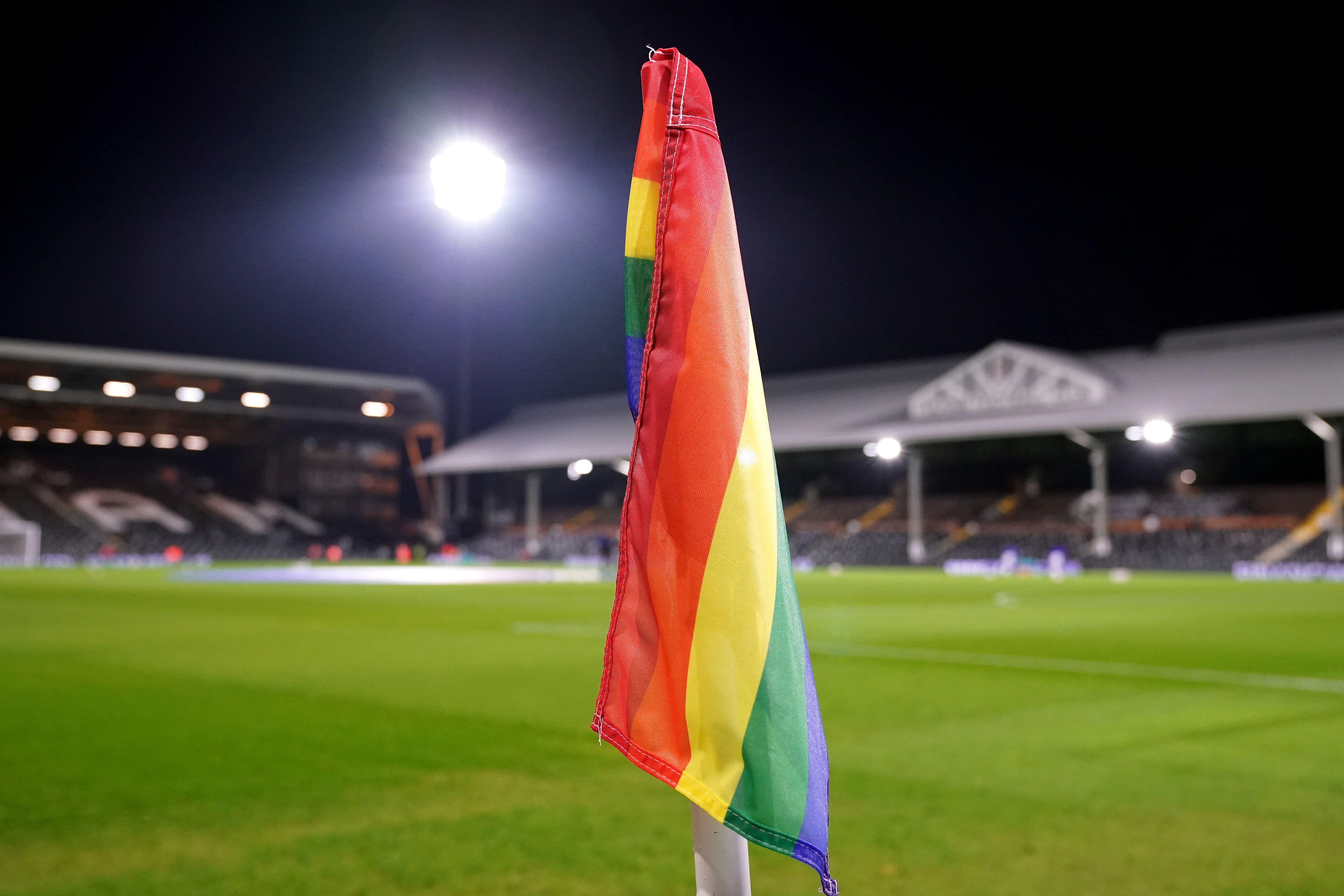5 ways to show support for the LGBTQ+ community around the world
With the World Cup taking place in a country where homosexuality is illegal to a lethal shooting at a US gay bar, allyship has never been more vital.

Your support helps us to tell the story
From reproductive rights to climate change to Big Tech, The Independent is on the ground when the story is developing. Whether it's investigating the financials of Elon Musk's pro-Trump PAC or producing our latest documentary, 'The A Word', which shines a light on the American women fighting for reproductive rights, we know how important it is to parse out the facts from the messaging.
At such a critical moment in US history, we need reporters on the ground. Your donation allows us to keep sending journalists to speak to both sides of the story.
The Independent is trusted by Americans across the entire political spectrum. And unlike many other quality news outlets, we choose not to lock Americans out of our reporting and analysis with paywalls. We believe quality journalism should be available to everyone, paid for by those who can afford it.
Your support makes all the difference.LGBTQ+ football fans and allys were left disappointed as England and Wales players were deterred from wearing the One Love armband for their first World Cup games in Qatar – where it is illegal to be gay.
It comes just after the lethal shooting in Colorado Springs’ Club Q, a gay bar, where five people were killed. So it feels like a vulnerable time for many in the LGBTQ+ community right now.
“Both the attack on Club Q and what’s happening in Qatar are awful reminders that being LGBTQ+ often means being unsafe,” says Amy Ashenden, director of communications at Just Like Us (justlikeus.org/), an LGBTQ+ young people’s charity.
“That’s a terrible and disproportionate weight that all LGBTQ+ people carry on their shoulders. Although these things are happening abroad, here in the UK we are seeing similar patterns – rising transphobia and anti-LGBTQ+ hate crime. Growing up LGBTQ+ is still unacceptably tough in the UK and we must be careful to not suggest that anti-LGBTQ+ attitudes are only happening elsewhere.”
While football fan and director of programmes at Stonewall (stonewall.org.uk/), Liz Ward, says: “It’s hard to love football and know that FIFA, the biggest institution in football, doesn’t love us back.”
The more allies there are, however, the safer LGBTQ+ people may feel. So what can people do to show their support during this time?
1. Open up conversations
Ashenden says: “I think this can be an opportunity to open up conversations about allyship with people in your life – whether that be at school around the World Cup and inclusion in sport.” By having these conversations at work, and at home, we’re helping to encourage inclusion everywhere.
2. Remind LGBTQ+ friends that you are there for them
“Many LGBTQ+ people are feeling incredibly shaken by what’s happened at Club Q. It’s not the first time that LGBTQ+ people have been killed in what they had felt was previously a safe space, an escape from an outside world of anti-LGBTQ+ behaviour,” says Ashenden. “The attack also happened during Trans Awareness Week, an already incredibly heavy time for trans people when our community is already grieving the lives lost to transphobia.”
Consider checking in on friends or colleagues who are likely to be impacted, she says.
3. Wear your Pride
Donning a little bit of rainbow somewhere is a great way to donate to LGBTQ+ charities and also show your allyship. Through campaigns like Stonewall’s Rainbow Laces (stonewalluk.myshopify.com) campaign, you can show your allyship in sport. Similarly, Football v Homophobia (footballvhomophobia.com/shop/) has a great donation scheme where you can get shirts and bags.
If you are looking to purchase something to show your allyship, make sure to shop from a charity or LGBTQ+-owned business directl so that the money is going directly into the community.
4. Donate to or volunteer for LGBTQ+ charities
We are not all flush with money at the minute, but if you are able to, directly donate to LGBTQ+ charities both at home and abroad. From Mermaids who supports trans youth, anti-abuse charity Galop and and LGBTQ+ mental health charity MindOut, to The Human Dignity Trust, who work in Qatar and BlackOutUK, who specifically help black gay men, there are loads of organisations doing important work.
“In the Middle East, check out the work of Ilga Asia, the Alwan Foundation and IraQueer,” says Ward.
See what help they need, work out what you can offer, or just raise your voice about them. If you are able to point one person who needs them in their direction, you are being a proactive ally.
5. Follow LGBTQ+ activists on TikTok and Instagram
One of the best places to start is by reading and listening to what LGBTQ+ people have to say about inclusion, safety and allyship. There are so many brilliant activists and authors out there who are speaking out about the issues LGBTQ+ people face the world over.
Influencers like Max Hovey, Blair Imani, Rose Montoya, Dylan Mulvaney and Tanya Compas, who are all on TikTok and Instagram are raising awareness of issues the LGBTQ+ community face, the intersections of race, disability, feminism and allyship and creating engaging content.
Similarly, forums like Ahwaa (ahwaa.org) are where LGBTQ+ Arabs are sharing their experiences, and while it makes for deeply upsetting reading, it reminds us of the state of affairs for many people around the world.